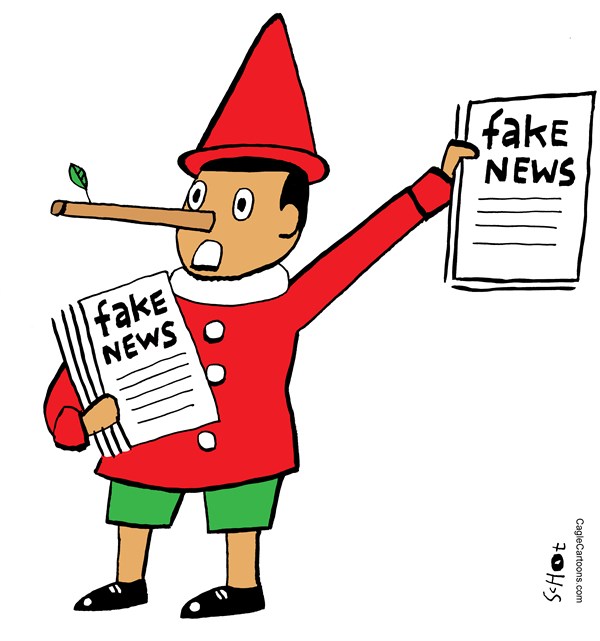
"Refugees carry stones, sticks - even mace - for protection, walk in groups by day and rarely leave home at night," USA Today's roving correspondent Jack Kelley reported on Nov. 23, 1992. Fortunately, Kelley wrote, decent Germans "hide refugees and Jews in their homes to protect them."
Based in Berlin at the time, I felt mystified, and a bit incompetent: Why had skinheads admitted possessing illegal guns and grenades - another stunning, exclusive detail in his story - to Kelley, but not to German or Germany-based U.S. reporters? And good Germans were hiding Jews, but we hadn't even heard rumors of it?
Not until 2004, two years after Kelley had been honored as a Pulitzer Prize finalist, did USA Today figure out he had been fabricating and plagiarizing since 1991.
I review this history as context for the new journalistic scandal involving fabrications by a star correspondent for Germany's renowned Der Spiegel magazine.
The Kelley scandal, like the 2003 revelation of Jayson Blair's frauds at the New York Times, disproved my belief that Stephen Glass's fakes at the New Republic (in the 1990s, when I was the magazine's editor) might be the last. Surely computer-aided fact-checking would deter fraud, I thought.
However, the unmasking of Der Spiegel's erstwhile ace, Claas Relotius, as a phony on Dec. 20, mere days after he collected his fourth German Reporter Prize, shows yet again that my hope was naive. Reporters keep inventing stories and getting prizes for them.
What's going on? Fact-checking and other procedural matters are relevant but not fundamental. A great German philosopher got closer to the point when he wrote: "Out of the crooked timber of humanity, no straight thing was ever made."
That includes journalism. Reporters and editors are as susceptible to motivated reasoning and confirmation bias as readers are, though we say, and believe, that professional norms and training equip us to resist distorting influences.
Yet the power of stereotype remains. When Kelley told his 1992 tale, he tapped into widely held American fears, rooted in World War II, that Nazi tendencies lurked just below the surface of newly reunified and democratic Germany.
Similarly, while many Germanj ournalists report honestly from this country, going to great lengths to travel and meet ordinary people, the gun-toting, death-penalty-seeking, racist American nonetheless remains a stock character of much superficial coverage, particularly in left-leaning outlets such as Hamburg-based Der Spiegel.
Ugly Americans, and American ugliness, crop up repeatedly in Relotius's articles. He made up a story about an oft-tortured Yemeni released from the U.S. military prison at Guantanamo Bay, and another about a Joplin, Missouri, woman who travels the country just to witness executions.
And on the outskirts of rural Fergus Falls, Minnesota, a majority of whose voters backed President Trump in 2016, Relotius purportedly found a large sign - "almost impossible to overlook," he wrote - reading "Mexicans Keep Out."
The fact that no one in the U.S. press or social media had previously spotted the sign apparently did not prompt so much as a follow-up call to Fergus Falls by Der Spiegel's editors.
They believed what they found believable. Their credulousness was rooted partly in truth - xenophobia, gun violence and the rest are real problems in the United States, just as anti-foreigner violence was, and is, in Germany.
But it also reflected bias: Contempt for American culture has a long history among the continental European cognoscenti, the sort of people who read Der Spiegel and write for it.
Negative caricatures of the United States have taken hold in broader German public opinion, too, especially since a stereotypical Ugly American, Donald Trump, reached the White House - but well before that, too.
The United States' favorability rating is lower in Germany than in any other large European democracy, and has been since the latter half of the Obama administration, according to data compiled by the Pew Research Center.
It was under President Barack Obama, after all, that Der Spiegel called the U.S. Embassy in Berlin "a nest of espionage."
Germany today finds itself in a galling situation: It depends, for both military protection and export markets, on a country - the United States - that many Germans, including influential figures in academia, the media, business and politics, regard with ambivalence bordering on disdain.
Der Spiegel's contribution to mutual understanding was to publish Claas Relotius, even though the magazine's deputy editor in chief described anti-Americanism as "deeply alien to me" in his published response to a letter of complaint about Relotius from the U.S. ambassador in Berlin.
The editor was undoubtedly sincere. Still, you have to wonder why Relotius didn't fabricate stories for Der Spiegel about, say, growing U.S. acceptance of racial and ethnic diversity, or a successful prison rehabilitation program. Maybe he worried the fact-checkers wouldn't believe him.
Sign up for the daily JWR update. It's free. Just click here.
(COMMENT, BELOW)


 Contact The Editor
Contact The Editor
 Articles By This Author
Articles By This Author